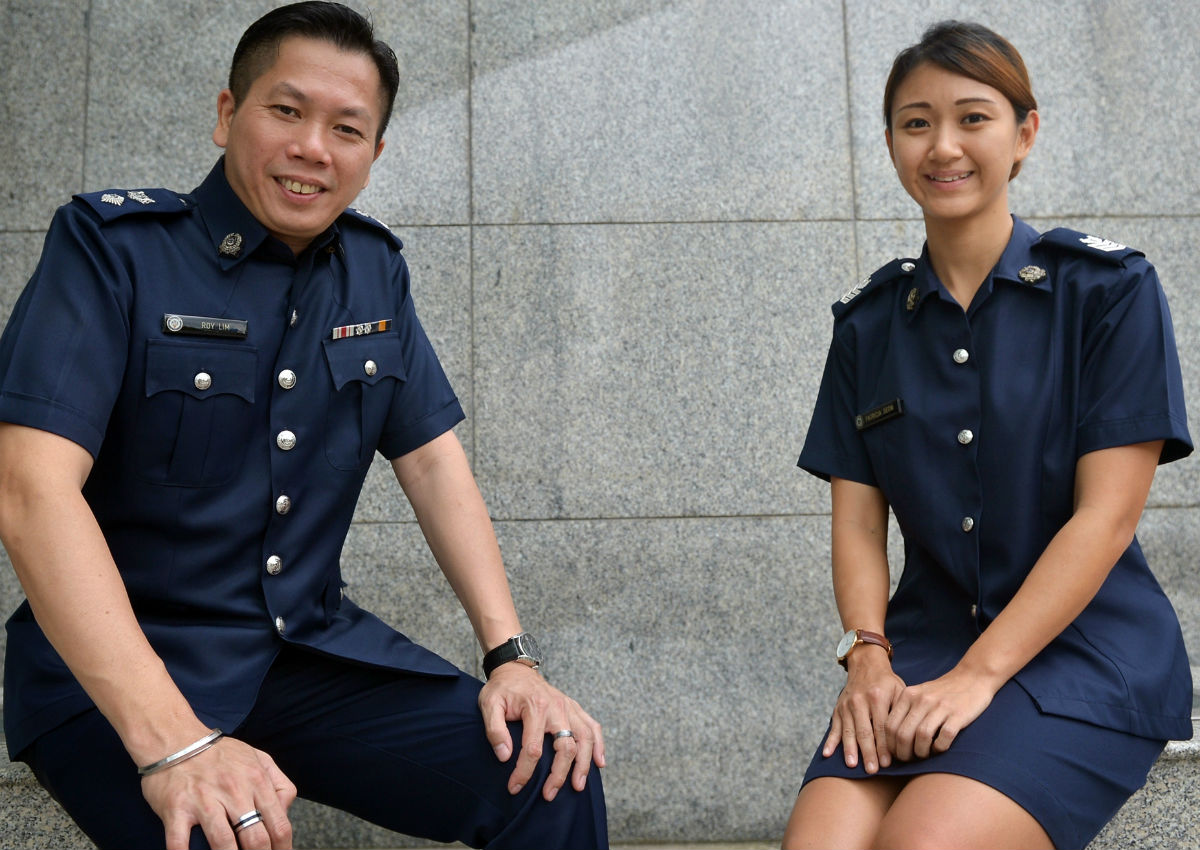First batch of officers under expert-track scheme to be appointed around September
Staff Sergeant Patricia Seow, 29, joined the Singapore Police Force (SPF) six years ago to pursue her childhood dream of being a criminal investigation officer.
But, not long after the Republic Polytechnic graduate joined, she realised it could take up to 18 years before she became an inspector – the entry rank of a degree-holder.
This will soon change. From July, junior officers like her can look forward to faster career progression when a unified rank structure comes into effect. Staff Sgt Seow hopes to take on supervisory roles in the near future.
All officers will start on common ground, on the same career track, instead of non-graduates starting as lower-ranking junior officers.
The new structure is part of a scheme unveiled at the annual Police Workplan Seminar last month.
There will also be new expert tracks allowing experienced officers to deepen their skills in the areas of investigations, intelligence or special operations.
The first expert-track officers will be appointed around September.
Such changes aim to attract more young people to join the force and to retain talented officers, as the SPF steps up recruitment this year to fill new posts, such as in its Emergency Response teams.
With the growth of terrorism, cyber and transnational crimes it has become harder to keep Singapore safe, said Senior Assistant Commissioner Tan Hung Hooi, the SPF’s director of manpower.
SAC Tan added: “Attracting suitable men and women to join the police force is not easy and this has become even more challenging with the shrinking resident workforce.”
Deputy Superintendent of Police Roy Lim, 44, who joined the force with O levels 26 years ago, said: “(The unified structure) provides newer officers or future officers more opportunities and a level playing field for them.”
He started as a constable and rose through the ranks over 13 years, before becoming a station inspector.
“At that point in time, with little education, the hope of becoming a senior officer was dim,” he said.
“There were too many steps,” he said, and there were also many officers coming in with better paper qualifications.
Now, he is deputy head of the special investigation section of the Criminal Investigation Department, handling high-profile cases such as the shooting of a 34-year-old man by police outside the Shangri-La Hotel in May last year.
Moving forward, DSP Lim hopes to take on an expert track in investigations, allowing him to be promoted without having to transfer out of the special investigation section.
SAC Tan said expert tracks aim to groom specialists who can become leading practitioners within the police force and, eventually, across agencies.
Experienced officers such as DSP Lim will also be given the chance to share their expertise with younger officers by creating training courses for them.
“In time to come, expertise and knowledge will not be centred in a few individuals, but spread throughout a fraternity,” he said.
byseow@sph.com.sg

This article was first published on May 9, 2016.
Get a copy of The Straits Times or go to straitstimes.com for more stories.






